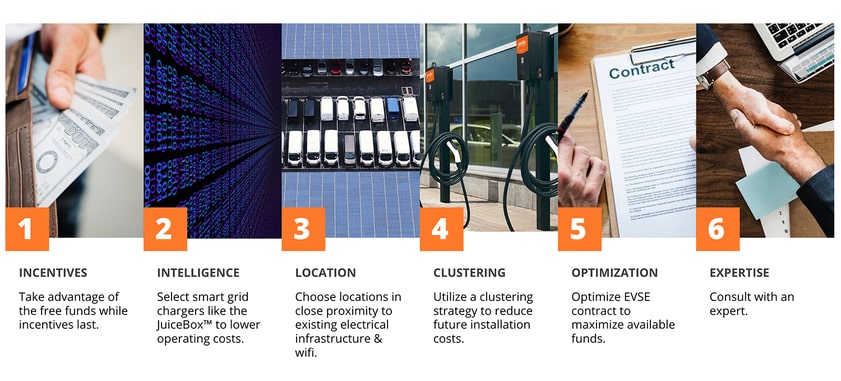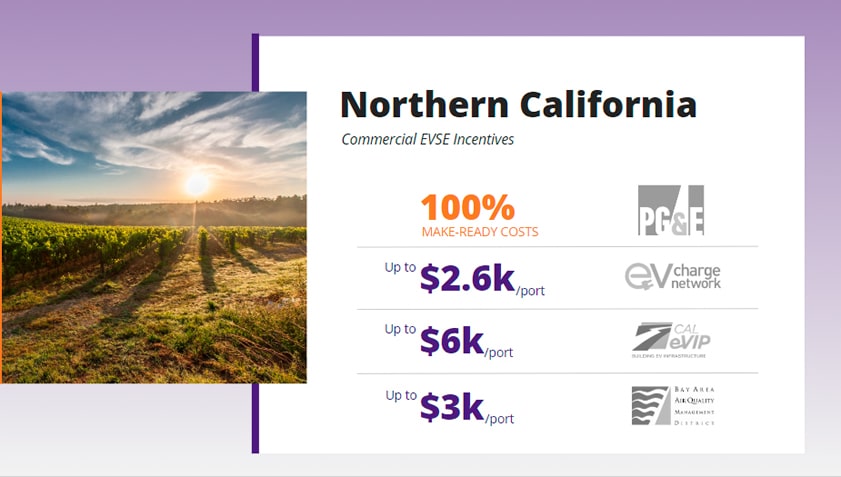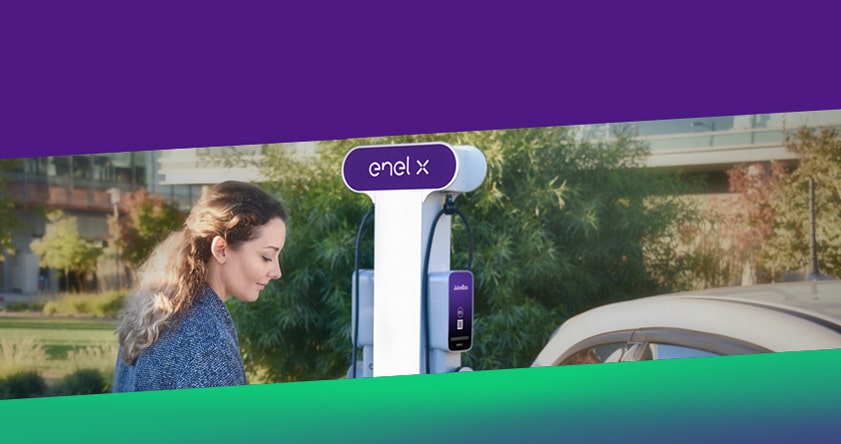What to Expect From a Commercial EV Charging Station Installation

A number of signs are pointing to the fact that we’re only at the tip of the iceberg with regards to EV deployment. Bloomberg New Energy Finance forecasts that the EV market is about to take off, with more than 20 million EV sales expected globally by 2030, and more than 60 million EV sales by 2040, equivalent to 55% of the global light-duty vehicle market.
The coming electric car boom is being driven by a number of related factors, including aggressive national and state policies on zero emission vehicle deployment goals and diesel bans, shifting consumer demands, increasing environmental awareness, and hundreds of billions of dollars in investment from auto manufacturers as they ramp up production on a variety of new electric car models to better compete with Tesla.
With the rise of EVs comes the need for EV charging. Below we will discuss your options for charging electric vehicles and want to expect out of a Commercial EV Charging Station Installation.
Home Charging
Right now, over 80% of all electric vehicle charging occurs at single-family homes via home EV charging stations, which makes sense as early EV adopters are more likely to own homes and have dedicated parking spaces. In order to move past this stage and bring range confidence to more people, more charging is needed outside of the home for renters as well as people that live in apartments and condos. As a result, billions of dollars of funding is being made available for EV charging infrastructure buildout at the workplace, commercial, and public locations through Utility “Make Ready” infrastructure programs, government-backed programs, and Electrify America.
Work Place Charging
Workplaces are an ideal charging location, as they are the second most frequent parking location behind homes. Workplace EV chargers can be the primary charging point for drivers without dedicated charging in their home garage. Additionally, workplace charging stations can provide flexibility and relieve range anxiety for other electric vehicle drivers. The expansion of workplace charging also has been shown to increase electric vehicle ownership. Below, we will discuss the EV charging station installation process and how states are incentivizing drivers to switch over to plug-in electric vehicles.
EV Charging Station Installation at Commercial Properties
To start, there is a lot of regional funding available for electric car charging to accelerate electric vehicle adoption. Businesses can take advantage of thousands of dollars of incentive money while these funds are available to invest in EV charging at low or zero cost. A number of the local utility programs are quickly filling up, and it’s unclear if these incentives will come back. Overall, commercial properties of all types - whether it’s a retail space, multifamily building, office or workplace, university, hospital or public building - are looking to increase property value and improve employee and visitor satisfaction.
Installing EV charging stations offers property owners and managers an opportunity to cater to the needs of EV drivers, differentiate their property, and attract high-income renters in apartments and condos. For workplaces, EV charging helps to attract and retain top talent. Employees appreciate the added perk of being able to charge up at work, and happy employees are often more productive employees. The U.S. Department of Energy (DOE) recently surveyed employers offering workplace charging, and the findings showed their employees were six-times more likely to drive a plug-in EV, than employees that did not have access to charging at work. The survey also found 80 percent of the employers offering EV charging as a benefit, were able to attract and retain a more talented modern workforce. A nominal cost to appeal to the best and brightest.
Regulation and corporate sustainability programs also play a role. Businesses can contribute to their sustainability goals and receive LEED credits for EV infrastructure. Also, cities like Miami, Seattle and others are requiring future commercial developments, apartment buildings and condominiums to have the electrical infrastructure in place to enable easy EV charging installation. EV charging is a valuable amenity that makes your property more attractive and increases its value.
EV Infrastructure Incentives Play a Key Role
Finding and utilizing incentives that can reduce or eliminate capital expenditures is key, as you embark on electric vehicle charging infrastructure projects. The good news is that more and more states, utilities and other stakeholders recognize the importance of commercial charging, and are offering incentives to install charging stations. Quite often businesses can combine multiple incentives for the same project, which can eliminate the cost of the equipment and installation. There are currently over 50 programs available in 25 states which incentivize the installation of charging stations. Below are just a few examples of current charging station incentive programs in California, Massachusetts and Hawaii.
Northern California

For instance, in Northern California, PG&E will cover up to 100% of the make-ready costs of your site, and through their EV Charge Network Program, site owners can qualify for up to a $2,600 rebate per charging stall, for EV charging equipment in multi-unit dwellings and workplaces. There’s also the CalEVIP program, that funds up to $6,000 per charging stall for the purchase and installation of Level 2 and DC Fast charge stations for businesses & MUDs.
Massachusetts

In Massachusetts, Eversource & National Grid will fund up to 100% of the make-ready expenses, and in select locations, they’ll cover the cost of the charging stations as well. and also offers rebates for approved charging stations, like the JuiceBox Pro 40c. There’s also programs by MassEVip, that can save property owners up to $5,000 per port, for approved EV charging equipment installed on their properties.
Hawaii

In Hawaii, Hawai'i Energy is offering up to a $5,000 rebate per charging station, for equipment installed at commercial buildings. However, the program expires on June 30th, 2019, so hurry up and apply, before time runs out. These are just a few examples of funds available to help make the decision to install EV charging on your site an easy one. To find out if you qualify for an incentive to install charging stations on your property, you can search by zip code from our website.
Commercial EV Charging Installation Considerations

Electric vehicle charging projects generally have three capital cost expenditures:
- 1) “Make-Ready Infrastructure” is usually the most costly and time-consuming part of the project. Every site is different, with its own unique challenges, so make-ready expenses can vary greatly from site to site. Make-Ready infrastructure expenses include all the necessary electrical infrastructure to operate the charging stations, a conduit for wires, pouring new concrete as well as re-striping the parking lot and adding charging station signage.
- 2) Installation. Often people assume installation expenses are included in make-ready costs, but they are not, and this expense can get overlooked. Our team can help you understand the incentive landscape and your site-specific installation costs.
3) Charging Stations. One of the biggest decisions you’ll have is whether to install networked (i.e. connected to WiFi) or non-networked chargers. Most incentive programs require the site to install networked charging stations to qualify for the funds, so make sure you take that into consideration before you purchase the equipment. Networked charging stations allow the site owner to have control over the stations, and are necessary if the stations are going to be restricted to certain people, and also if you plan to charge users for the electricity they use. With JuiceNet Enterprise, we provide site hosts the ability to control access amongst authorized users, by providing drivers an app that they use to log into with a QR code. That way, site owners can pass through relevant costs to the drivers and control who uses the stations. This feature can be especially useful in multi-unit dwellings, where the site owner needs to make sure that only authorized users have access.
The Time is Now
Electric vehicle adoption is beginning to really accelerate, and there’s no sign of it slowing down. More and more business and property owners are realizing the benefits of installing charging stations for the use of their employees, residents and customers. Charging stations helps employers attract and retain top talent, they widen the pool of prospective tenants for multi-family units, and they attract customers to businesses that otherwise wouldn’t have visited the property.
Charging stations help property owners meet emerging state and local regulations and they demonstrate a commitment to leadership and sustainability. Interested in installing commercial charging stations on your property, or just have questions? Just contact us, and we’ll answer any questions you have. If you then decide to install charging stations, we’ll help you with every step of the process.







